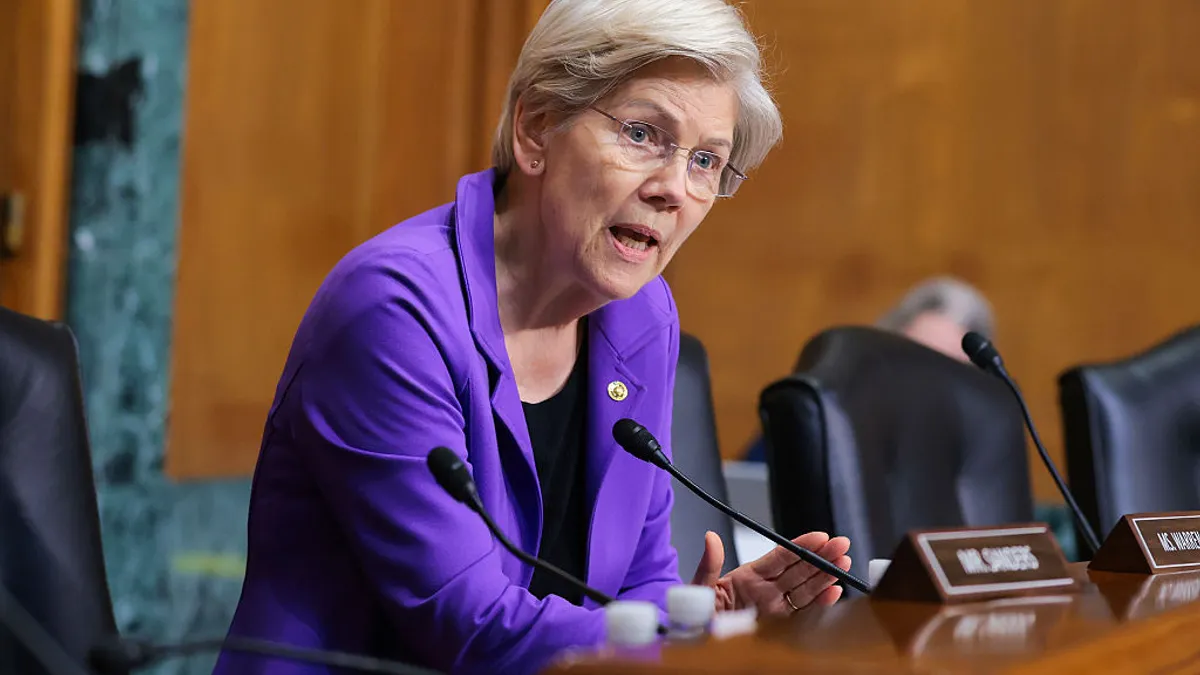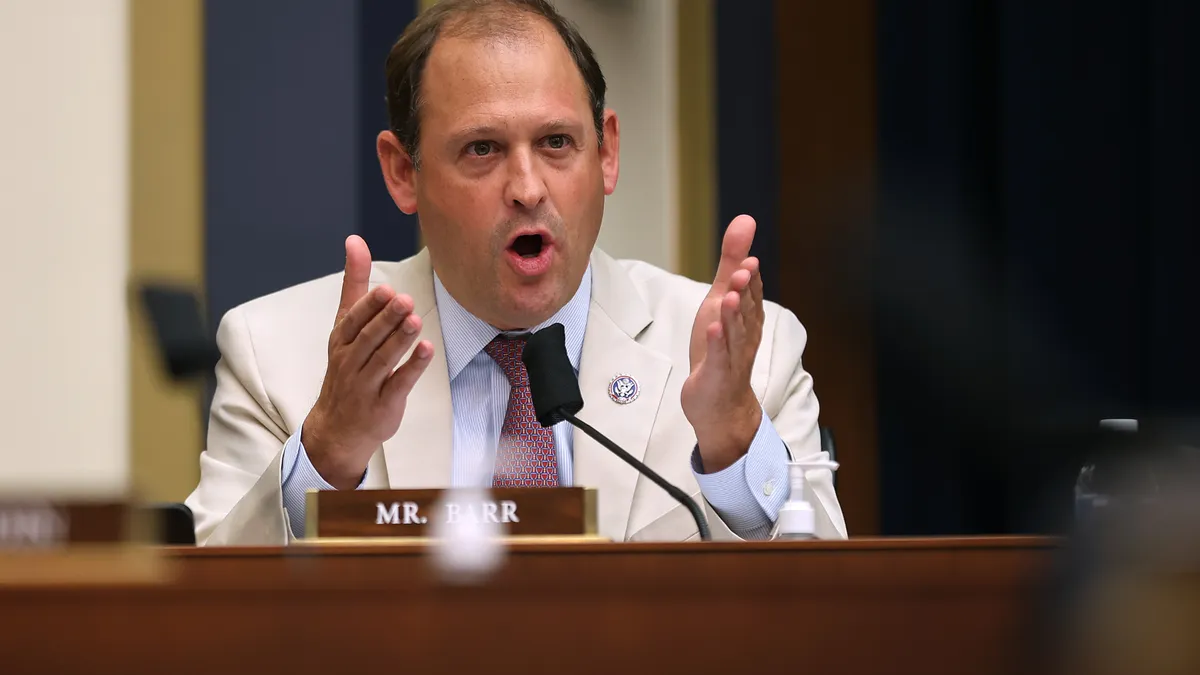The Federal Deposit Insurance Corp. has extended until Feb. 10 the deadline it has given BlackRock to sign an agreement over how to regulate passive investing when an asset manager holds a stake of 10% or more in big banks, Bloomberg reported Sunday, citing three people with knowledge of the matter.
BlackRock, in a Thursday letter to the regulator, asked for a March 31 deadline, arguing that the Jan. 10 deadline the FDIC initially sought was unrealistic.
The FDIC’s initial request came Dec. 27, the day fellow asset manager Vanguard signed a stricter passivity agreement with the agency. Vanguard and other asset managers, since 2019, had been allowed to self-certify that they would refrain from influencing the nomination of directors to the boards of banks in which they hold a stake of 10% or more. But under last month’s deal with the FDIC, Vanguard agreed to external and internal audits to verify it is, indeed, not meddling with corporate governance.
“We are not aware of any imminent or ongoing issues that would warrant hastening the finalization of a completely new regulatory framework in a two-week period,” Ben Tecmire, BlackRock’s head of U.S. regulatory affairs, wrote Thursday in a letter to the FDIC, seen by Reuters and Bloomberg.
If BlackRock doesn’t make enough progress toward a new passivity agreement, the FDIC may begin an investigation and demand more information, Bloomberg reported Sunday, citing its sources. The FDIC could issue a subpoena and make some actions mandatory, one source said.
To BlackRock’s understanding, the Vanguard agreement came after months of negotiation with the FDIC, Tecmire wrote. BlackRock’s attempts to meet with the regulator in late 2024 were rebuffed, a person familiar with the matter told Reuters.
However, BlackRock in early December reportedly pitched its own version of a passivity agreement to the FDIC – without the compliance measures to which Vanguard agreed.
The FDIC did not respond to a request for comment.
Tecmire wrote the FDIC in October, arguing that a stricter passivity agreement would “disrupt the flow of capital to the economy and undermine bank safety and soundness.” Investment industry groups further contended such enhanced agreements would raise compliance costs, make bank stocks less desirable investments and duplicate oversight by the Federal Reserve.
Tecmire echoed that last point Thursday.
"All the banks that would be covered by your proposed agreement with BlackRock are subject to regulatory oversight by the Federal Reserve,” he wrote Thursday, adding that the asset manager would prefer to avoid "inconsistent and uncertain requirements" that may stem from pacts with multiple bank regulators.
BlackRock has said the FDIC should coordinate any enhanced oversight with the Fed, which already has a passivity agreement with the company.
One FDIC board member – Consumer Financial Protection Bureau Director Rohit Chopra – proposed last summer to update “an odd provision that, in practice, eliminates the agency’s review of changes in control for many covered transactions.”
“It is highly inappropriate for the FDIC to abdicate the responsibility Congress entrusted to us to safeguard the ownership and control of the banks we supervise,” Chopra said.
Perhaps one influence on the timing of the Jan. 10 deadline is the upcoming change in presidential administrations. The Supreme Court in 2020 ruled that the president could fire the director of the CFPB “at will,” meaning Chopra, a Democrat, could be relieved of his duties – which would also take him off the FDIC board – as soon as Republican Donald Trump takes office Jan. 20.
Arguably, the FDIC’s more ardent advocate for passivity agreements, Republican board member Jonathan McKernan, likely is staying, though.
McKernan on Dec. 27 called Vanguard’s agreement a “good step in the right direction,” saying the pact “adds specificity as to what it means to be a passive investor in FDIC-supervised banks or their holding companies.” In a statement, he cited a “growing body of academic work and other evidence raising doubt about whether … index fund complexes are truly passive.”
However, the Federal Reserve Bank of Atlanta, in a 2023 review, found "relatively little evidence" of such issues.
Jeff DeMaso, who writes a newsletter for Vanguard investors, urged regulators to "tread lightly" before assigning new safeguards to passive mutual funds or exchange-traded funds.
“We are trying to sort through the unintended consequences of indexing and the concentration of ownership,” DeMaso said in an email to Reuters. “Before (potentially) damaging that clear good, we should clearly know the problem we are solving.”























